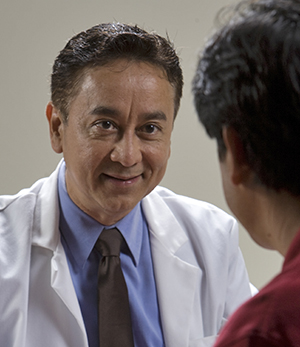Getting a Second Opinion on Cancer Treatment
Getting a Second Opinion on Cancer Treatment
It can be hard to decide on a treatment for your type of cancer. Before starting treatment, you may want to have a second doctor review your diagnosis and treatment options.
It's important to remember that in most cases a short delay in treatment will not reduce the chance that it will work. Some health insurance companies even require that people with cancer get a second opinion, and many other companies will pay for a second opinion if a patient requests it. You have a number of ways to find a doctor who can give a second opinion:
Your primary care doctor. Your doctor may be able to recommend a specialist, such as a surgeon, medical oncologist, urologist, or radiation oncologist. Sometimes, these doctors work together at cancer centers, hospitals, or special centers for certain types of cancer.
Your cancer specialist. He or she may be able to offer advice on other specialists.
Cancer Information Service. The Cancer Information Service, available by calling 800-4-CANCER (800-422-6237), can tell you about treatment facilities, including cancer centers and other programs supported by the National Cancer Institute. The National Cancer Institute has a goal to support and enhance the quality of clinical cancer research. It is committed to better understanding, diagnosing and treating cancer, as well as preventing it.
Commission on Cancer. This is a program that approves medical facilities and hospitals that are committed to provide the best in cancer diagnosis and treatment. To become an approved facility, certain quality standards must be met and a range of cancer services including lifelong care must be provided. The quality of care is constantly being evaluated. The Commission on Cancer maintains a list of approved centers in the United States. Approved centers and more information can be found here.
Other options. These include local medical societies, a nearby hospital or medical school, local cancer advocacy groups, and other people who have had cancer.
American Medical Association (AMA). This medical organization provides an online "Doctor Finder" service. It also gives information on participating doctors' education, training, specialty areas, and how to contact them. The AMA also provides a directory of the medical associations of each state to assist in locating doctors in your state.
When doctors plan treatments, they take into consideration the type and stage of your cancer, how likely the cancer can be cured with each treatment, and how the treatment will affect your day-to-day activities. Other factors are also considered, such as your general health and, most important, your wishes.
It's vital that you be comfortable with your treatment decision and have confidence in your doctor. For these reasons, a second opinion with another specialist can help you make smart treatment decisions.
Updated:
July 07, 2018
Reviewed By:
Hanrahan, John, MD,Levy, Adam S, MD